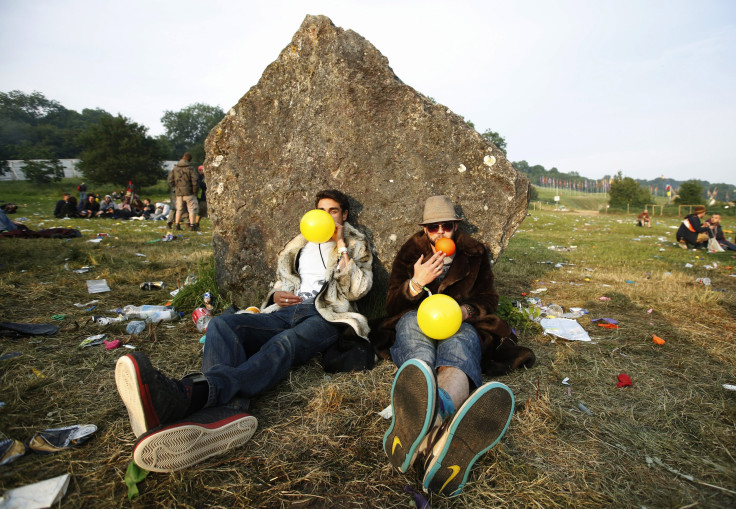Protesters inhale laughing gas in London to protest against anti-mind-altering drug bill

Protesters littered the Parliament Square in London with coloured balloons to demonstrate against the Psychoactive Substances Bill on Aug 1. About 50 to 60 people gathered and simultaneously inhaled laughing gas in public under the “my mind, my choice” campaign.
Protesters felt high, dizzy and some broke into giggles after inhaling laughing gas from balloons. The protest is against the Psychoactive Substances Bill that introduces a blanket ban on the production, distribution, sale and supply of mind-altering substances on streets.
But not all mind-altering substances were banned, including alcohol, caffeine, tobacco, and medical products are all currently the only substances exempt. However, laughing gas falls under the banned psychoactive substances as it delivers a brief high, and particularly is not on the exemption list.
The government drafted the bill aiming to cut down the “cat-and-mouse game” on dealing with high street trades of “synthetic cannabinoids, psychedelics and nasty compounds” on teenagers, the director for government affairs and communications at the Angelus Foundation, Jeremy Sare, told IFLScience. However, the bill has been criticised by the Advisory Council on the Misuse of Drugs, or ACMD.
The advisory council warns the current form of the bill “may produce serious unintended consequences,” although ACMD is supporting the “move to reduce and prevent harms and preventable deaths” with the bill. The ACMD criticises “the scope of the bill” particularly its substantial impact on herbal remedies, and it disproportionately criminalises young people as the law could be used against social suppliers or the people who buy drugs for their friends.
In addition, protesters pointed the real issue was broader than just laughing gas, frustrated at the action of the British government regarding legislation on drugs. Stephen Reid, the founder and director of Psychedelic Society, who launched the protest, also told IFLScience, if people want to use the substances, “ultimately it’s their choice” but it is necessary that “we show them how so they can use it safely and make them fully aware of all the potential negative consequences.”
Prior to the bill, laughing gas has been used recreationally and in medicine for over 200 years with estimated 400,000 people using it in England and Wales each year, according to the Home Office in London. Laughing gas is currently considered as the second-most popular recreational drug in Britain after cannabis.
But, there are risks to inhaling laughing gas. Since 2006, nine deaths were linked with the drug as large amounts of nitrous oxide can starve the user’s brain of oxygen after an extended period of time of inhalation. The user may become unconscious and die from brain damage within minutes, according to Drug Science UK.
The protest, led by Reid, started a petition that calls for the legalisation of cannabis in the UK, which already gained more than 125,000 signatures in the past week. As the petition has passed the 100,000 signature quota, members of parliament would debate the issue.
Contact the writer at feedback@ibtimes.com.au





















